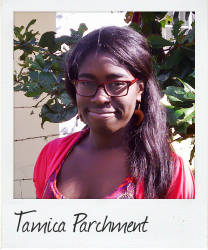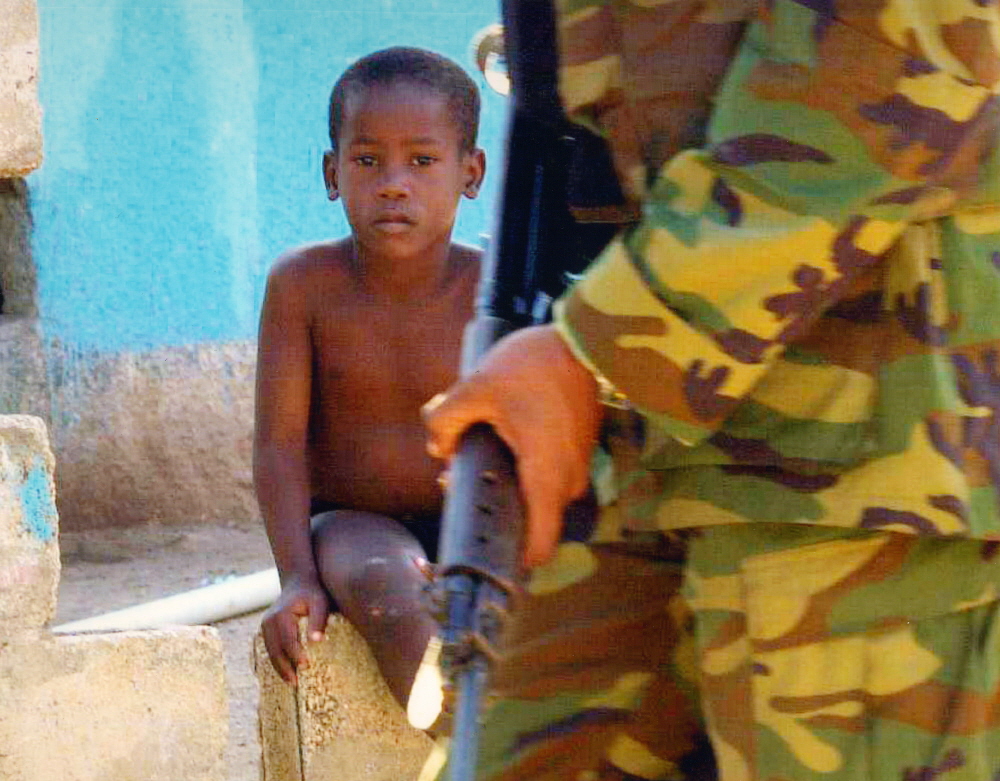“She became a symbol of anti-Taliban sentiment”
December 1st, 2012 The shooting of Malala Yusufzai brought both world-wide attention to child victims of conflict and a call for action against extremists, writes Tamica Parchment, 24, a Commonwealth Correspondent from Kingston, Jamaica. But there is a danger in using Malala’s bravery as evidence in the case for war.
The shooting of Malala Yusufzai brought both world-wide attention to child victims of conflict and a call for action against extremists, writes Tamica Parchment, 24, a Commonwealth Correspondent from Kingston, Jamaica. But there is a danger in using Malala’s bravery as evidence in the case for war.
By now the tragic shooting of Malala Yusufzai is known world-wide.
The 14-year-old Pakistani girl pursued an education even after the Taliban sent out an edict that banned education for girls in the Swat Valley.
Besides defying this edict, Malala campaigned publicly for the right to education and immediately became a target because of her activism.
The attack was condemned all over the word and in her home country. The bullet shot into Malala’s head was removed in Pakistan, but she was transported to a hospital in England for treatment of her life-threatening condition. Celebrities and political officials came out in support of her, and suddenly she became a symbol of anti-Taliban sentiment. The cruelty displayed by these members of the Taliban had cut deep. How could one target an innocent child?
It is understandable that child victims sometimes become symbols. Whether it’s the child soldiers in Sierra Leone or Elian Gonzalez, whose family’s personal battle became a symbol of Cuban-American relations, a child’s unfortunate suffering can raise awareness of political and social issues. We sympathize with their suffering because of their innocence and want to do whatever we can to change their conditions.
However, we must be wary of how our emotions lead us to react. A child’s suffering should not be used by governments as emotional manipulation. Already, there are calls being made to use more force against the Taliban and extremists not only in Pakistan but also in countries in the Middle East. Yet external military activity has been a staple of this region for many years, and still the situation seems to worsen and spread to other countries at a startling rate.
While force is necessary, the root of the problem must be eradicated. Countries like Pakistan have a very sensitive situation caused by decades of “a broader mix of problems caused by bad governments, corrupt politicians and militant leaders who exploit grievances for their own ends,” says Shamshad Ahmad in “The Perversity of Extremism”. More force is simply not enough, and Malala’s bravery must not be used as another piece of evidence in the case for war.
It is simply not ethical for a child’s sacrifice to be used as part of a smear campaign. It solves nothing and causes more conflict. Their suffering should not become symbolic in international relations or politics, but a reminder of the senseless nature of human conflict.
Photo: Norman Grindley/Commonwealth Photography Awards
…………………………………………………………………………………………………………………
About me:
I’m a television editor/producer and business communications specialist. I have a first degree in media and communications and international relations. I enjoy classic literature, art, studying languages and reading about foreign policy and other political issues.
I have two goals I would like to achieve in my lifetime: to travel to many places around the world and to make an impact through media by encouraging behavioural change.
…………………………………………………………………………………………………………………
Opinions expressed in this article are those of the author and do not necessarily represent the views of the Commonwealth Youth Programme. Articles are published in a spirit of dialogue, respect and understanding. If you disagree, why not submit a response?
To learn more about becoming a Commonwealth Correspondent please visit: http://www.yourcommonwealth.org/submit-articles/commonwealthcorrespondents/




